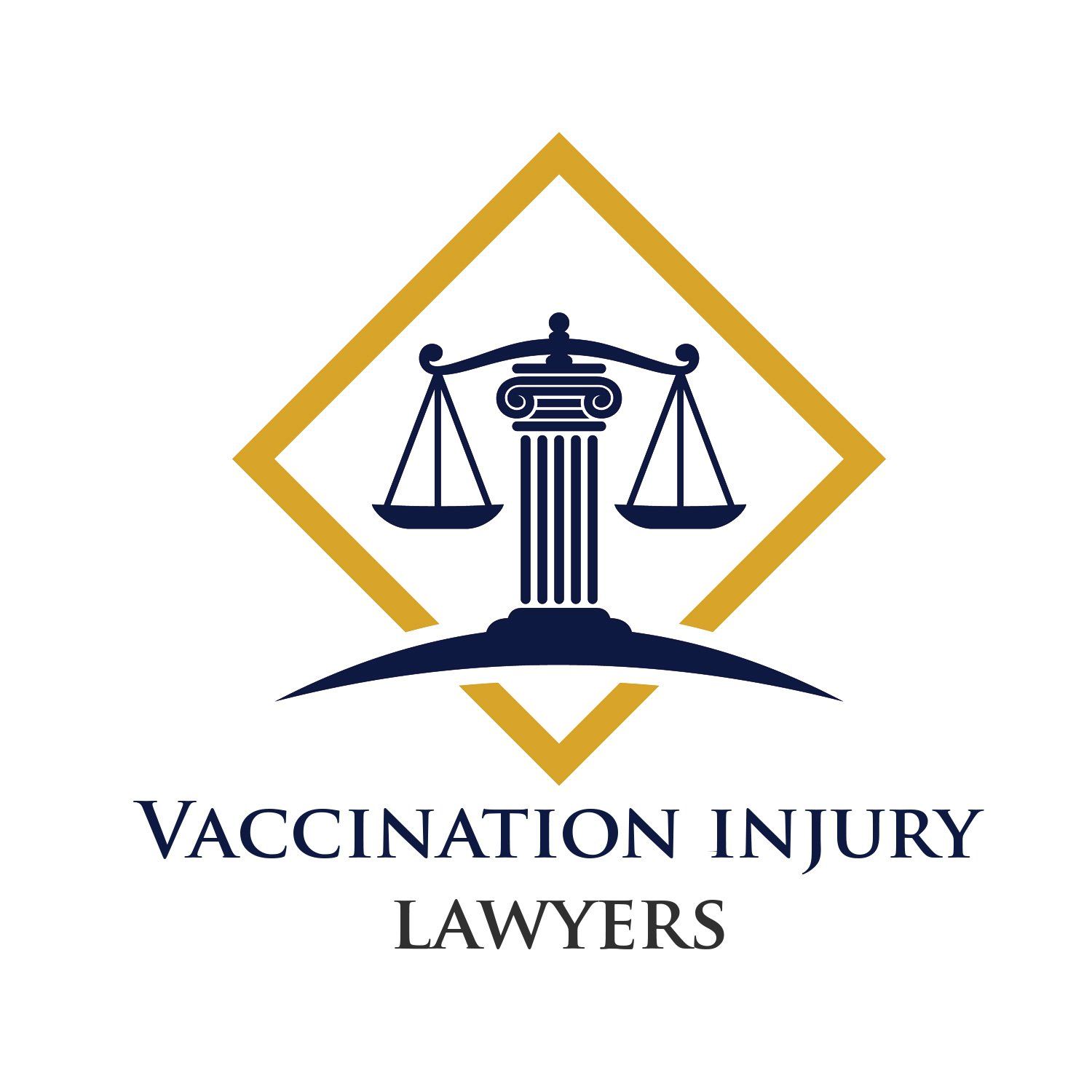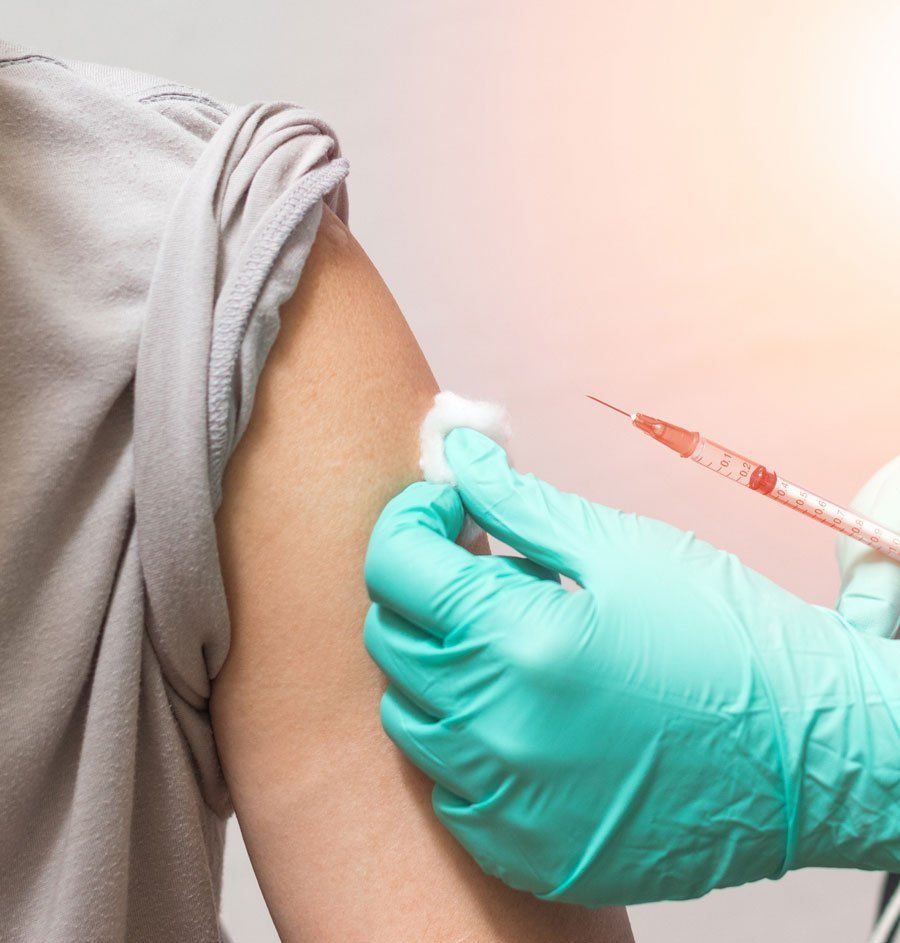VACCINE INJURIES COVERED
List of Vaccine Injuries Covered
- Guillain-Barre syndrome (GBS)
- Transverse Myelitis
- Acute Disseminated Encephalomyelitis (ADEM)
- Anaphylaxis
- Anaphylactic shock
- Encephalopathy
- Brachial Neuritis (Parsonage-Turner Syndrome)
- Chronic arthritis
- Thrombocytopenic purpura (ITP)
- Paralysis
- Intussusception
- Shoulder Injury Related to Vaccine Administration (SIRVA)
- Shoulder injury
- Rotator cuff tear
- Urticaria
- Seizures
- Death
- Hospitalization
- Surgery
- Trauma
- Narcolepsy
- POTS
- PDD
SIRVA—Shoulder Injuries Related to Vaccine Administration—is not a specific injury, but a category of injuries that can occur due to the improper administration of a vaccine.
The symptoms of SIRVA usually begin with pain at the injection site within 24 hours of the vaccination, limited range of motion, tingling or loss of feeling and weakness. SIRVA is not caused by the administered vaccine but by trauma from the needle. When the shoulder is punctured by the needle, the tendons, muscles and ligaments can become aggravated, leading to an inflammatory reaction. Common causes of SIRVA include improper needle length or incorrect administration of the vaccine.
- Deltoid Bursitis
- Tendonitis
- Shoulder Bursitis
- Rotator Cuff Tear
If you have been diagnosed with SIRVA, our vaccination attorneys can help you file a vaccine injury claim to get you compensation. There is no cost to you, and our fees are paid from a separate fund, not from your awarded compensation. Read more about the compensation program here.
Please call our Vaccination Injury Lawyers at (615) 815-1508 if you have been injured by vaccination or for more information on reporting a vaccine injury claim.
In this modern-day of medicine, we think of flu shots as a common, non-threatening vaccination that we receive on an annual basis. It’s the first line of defense against influenza, usually with few to no side effects. But according to the U.S. Department of Health and Human Services, the flu vaccine has been associated with a number of cases of Guillain-Barré Syndrome.
Guillain-Barré Syndrome (GBS) causes the immune system to attack and weaken the peripheral nervous system, leading to a weak or tingling feeling in the legs. The symptoms often increase over time and can lead to paralysis of certain muscles or even total paralysis, which is life-threatening. Though it is rare, GBS affects all ages and both sexes.
The exact cause of GBS is unknown, but many cases have been linked to vaccinations, primarily the flu vaccine. Other vaccines related to GBS include the tetanus shot, Hepatitis B vaccine, Menactra vaccine, and the Gardasil vaccine.
There is no known cure for Guillain-Barré Syndrome, but most people recover over time with therapy and treatment. Some may experience long-term effects such as weakness, fatigue or mild numbness of the limbs.
If you have been diagnosed with Guillain-Barré Syndrome related to a vaccination, you may be eligible for compensation through the National Vaccine Injury Compensation Program. Our vaccination attorneys will meet with you to discuss your case and help file your vaccine injury claim. There is no cost to you, and our fees are paid from a separate fund, not from your compensation.
To learn more about the Vaccination Injury Compensation Program, and to see if you are qualified for compensation, please contact our vaccine injury attorneys at (615) 815-1508 .
Transverse Myelitis is a neurological disease-causing inflammation and injury to the spinal cord. Symptoms of Transverse Myelitis include back pain, head and neck pain, pain or paralysis of the limbs and respiratory paralysis.
Though caused by a number of conditions, including Multiple Sclerosis, Devic’s Disease, viral infections of the respiratory tract and autoimmune disorders such as lupus, Transverse Myelitis can result from vaccinations for infectious diseases. The most common vaccines leading to Transverse Myelitis include the hepatitis B vaccine, the measles-mumps-rubella (MMR) vaccine and the diphtheria-tetanus vaccine.
Diagnosing Transverse Myelitis can involve a number of tests, including an MRI, spinal tap and blood tests, along with with documenting signs and symptoms and an in-depth review of your medical history. Treatment can include taking pain medication, steroids to reduce the inflammation in the spinal column, physical therapy, and occupational therapy to help you regain strength and mobility or psychotherapy to help treat anxiety and depression associated with the disease.
If you have been diagnosed with Transverse Myelitis due to a vaccine, contact our office today to learn more about the National Vaccine Injury Compensation Program. You could qualify for compensation to cover your medical expenses. Our vaccination injury attorneys will present your case at no cost to you. Our fees are paid from a separate fund, not from your compensation.
Contact us today and let us review your case to determine if you are qualified for compensation. Call today at (615) 815-1508.
Parsonage-Turner Syndrome (PTS)—also known as brachial neuritis—is a condition affecting the brachial plexus, or the group of nerves between the cervical spine and the shoulder, down through the arm. Inflammation of these nerves causes severe pain in the shoulder and upper arm.
Symptoms of PTS/brachial neuritis include the following:
- Pain in the shoulder and upper arm
- Sharp, radiating pain experienced only on one side of the body
- Weakening of the muscles in the arm due to severe, long-term pain
- Partial paralysis or numbness in the arm or shoulder
PTS/brachial neuritis has no known cause, but immunologic, environmental and genetic factors have been associated with the condition. A recent immunization, surgery of the brachial plexus, strenuous exercise, anesthesia or autoimmune disorder are common triggers of PTS.
There are no specific treatments for PTS/brachial neuritis, but treatment is directed toward the specific symptoms of the individual. Medication targeting nerve pain, physical and rehabilitative therapy, hot/cold therapy and surgery are common treatments for the pain associated with PTS. Some cases only affect individuals with a singular episode, while others have reoccurring symptoms.
If you have been diagnosed with Parsonage-Turner Syndrome /Brachial Neuritis due to immunization, you may be eligible for compensation through the Vaccination Injury Compensation Program. With the help of our vaccination attorneys, your case will be presented to determine if your case meets the medical and legal criteria for compensation. If compensation is awarded, our fees are not taken from your funds, but from a separate account.
Contact us today at (615) 815-1508 and we will review your case at no charge to you.
Immune Thrombocytopenic Purpura (ITP) is an autoimmune disorder that causes excessive bruising or bleeding due to a decreased number of platelets and the inability of blood to clot. Most cases are mild, although cases of intracranial hemorrhaging have been reported. Adults are at risk of chronic ITP1, whereas children primarily acquire acute ITP and recover within several weeks to months, even when cases are severe. Corticosteroids are the primary treatment for Immune Thrombocytopenic Purpura, though in severe cases a platelet transfusion may be necessary.
Cases of Immune Thrombocytopenic Purpura have been linked to the Measles-Mumps-Rubella (MMR) Vaccination, though the risk of developing ITP is estimated to be 1 in 22,000.
If you have been diagnosed with Immune Thrombocytopenic Purpura caused by the MMR vaccine, you may be qualified for compensation through the Vaccination Injury Compensation Program. Our vaccine injury attorneys will review your case and present it to the court to determine if your case meets the medical and legal criteria for compensation. Our services cost nothing to you, and our fees will not be taken out of your compensation.
Contact our vaccine injury attorneys today at (615) 815-1508.
SOURCES
Most people are familiar with the flu vaccine. We know that it’s a simple shot or nasal spray available each year to help protect us from the flu. Some people get the vaccine yearly, while others get one every few years or not at all. The CDC recommends that those 6 months and older should get the flu vaccine every year to help prevent the spread of influenza. Most people who get the vaccine have no issues or side effects, but others are affected by the vaccine, leading to illness, hospitalization or chronic disease.
Certain people are affected by the flu vaccine in minor ways, such as achiness, runny nose or swelling of the injection site. Others are affected a bit more strongly with fever or severe allergic reactions. Finally, a small percentage of people have been diagnosed with Guillain-Barré Syndrome (GBS) associated with the flu vaccine. GBS is a disorder that causes the immune system to attack the nervous system, leading to numbness or tingling of the extremities, weakness, and paralysis in rare cases.
If you have been diagnosed with Guillain-Barré Syndrome due to the flu vaccine, you may be eligible for compensation through the National Vaccine Injury Compensation Program. Contact our vaccination injury attorneys today, and let us review your case. We will present a claim to the court at no cost to you. Our fees are paid from a separate fund.
To learn more about the National Vaccination Injury Compensation Program, or to find out if you are eligible for compensation, call today at (615) 815-1508 .

